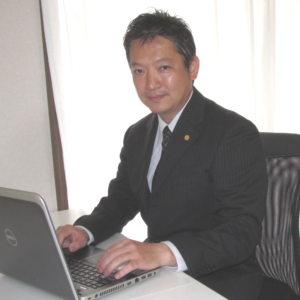The tightening of visa screening for international students could make Japan become a ‘less chosen country’.

It seems that the visa screening process for international students will be tightened from April.
The Immigration Services Agency (Immigration Agency) will tighten the visa screening process for foreigners wishing to study in Japan after April. To prevent entry for the purpose of working, the number of countries and regions requiring documents such as final academic certificates and bank balances will increase by more than tenfold. With the aim of expanding the employment of healthy foreign workers, stricter screening of international students who are increasing in illegal overstays and promoting the use of the specific skills system is also intended. Nikkei Asian Review
According to the article, even in the past, for countries and regions such as China (excluding Hong Kong), Vietnam, Nepal, Sri Lanka, Myanmar, Bangladesh, and Mongolia, more documents were required for visa screening than before. However, after April, this will be expanded to 80 countries.
Indeed, among these countries, the approval rate for study visas has dropped to less than 10% for Nepal, Sri Lanka, Bangladesh, etc. If this is expanded to 80 countries, it’s uncertain how much the total number of international students coming to Japan will decrease.
The background to such a policy seems to be the increasing number of students coming for work purposes and then dropping out of school or illegally overstaying after graduation. According to the article, “As of the beginning of 2019, about 4,700 foreigners who entered Japan for the purpose of studying were illegally overstaying, an increase of 1.7 times from about 2,800 in 2015. This is the level next to short-term stayers (about 47,000) who enter Japan without screening, and technical intern trainees (about 9,000) who are disappearing one after another."
Among foreign residents currently residing in Japan, the number of foreigners staying on “student" visas is 336,847 people (11.9% of the composition) (down 0.05% from the previous year), and for “technical intern training" visas, it’s 367,709 people (13.0% of the composition) (up 12.0% from the previous year) (Ministry of Justice website). Therefore, the illegal overstaying rate for “student" visas is 1.39%, and for “technical intern training," it’s 2.44%, showing that “technical intern training" has a higher illegal overstaying rate than “study."
However, there doesn’t seem to be any government voices advocating for reducing technical intern training. While it was expected that the introduction of the “specified skills" visa last year would naturally reduce technical intern training, the usability of the “specified skills" visa has been very poor, and its introduction has not progressed at all. Therefore, there is no expectation that technical intern training will decrease.
It is mentioned that there is also the aim of promoting the use of the specific skills system, but it’s hard to imagine the utilization of “specified skills" advancing while technical intern training is left untouched.
Indeed, many international students may come for work purposes. However, there is no doubt that they also have a desire to live in Japan and admire Japan. They work hard to study Japanese and gather money to come to Japan. It’s okay if the purpose of studying abroad is for work. I think that’s part of it, but I don’t think that’s the whole story.
Just because 1.37% of the total is illegally overstaying, tightening visa screening and not allowing studying abroad would make foreigners not want to go to Japan and choose other countries as their study destinations. This trend is already emerging. I’ve heard that Nepalese students who couldn’t go to Japan are choosing Australia or South Korea as their study destinations.
In reality, whether it’s technical intern training or specified skills, people with very low Japanese language abilities will come to Japan and work. Therefore, many companies employ international students who are good at Japanese as employees and have them engage in tasks such as instructing and managing foreign workers who are not good at Japanese.
If the number of international students decreases significantly, what will happen? There will be a shortage of talent to fill the gap between Japanese employees and foreign workers, and they will become dissatisfied with each other.
As a result, Japan may become a “less chosen country."








